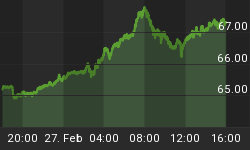An obscure philosophical argument about whether the present economic downturn is qualitatively different than others since WWII revolves around the issue of whether the advanced economies face a deflationary future - one where overall prices remain in a persistent downtrend - instead of the more normal course of persistent inflation has begun to reverberate around the G7 central banks and governments. In recent weeks, the US Federal Reserve Board and the Japanese Ministry of Finance have begun to debate the issue publicly, indicating an obvious level of official concern.
Japan has long been the exception to the rule that the only things certain in life are death, taxes and inflation. It has been in a state of mild but persistent deflation for almost a dozen years since its economic and financial bubble burst. What had first seemed a pleasurable experience, unchanged salaries buying more than they did a year before, has transformed itself into the present Japanese nightmare where sustainable growth cannot get traction, despite massive deficit spending that has reached almost 10 percent of GDP, zero interest rates and, more recently, substantial growth in the money supply.
Because of the duration of the slowdown, Japanese debt has officially reached a level of over 100 percent GDP - the same levels as such icons of frugality as Belgium, Italy and Greece. But that severely understates the true extent of the problem if proper allowance is made for unfunded pension liabilities, the bad debts on the books of the banks, problems in the insurance companies etc. Kenneth Courtis of Goldman Sachs calculates that the true indebtedness of the Japanese economy could be as high as 400 percent of GDP.
Whilst inflation decreases the burden of indebtedness through the erosion of purchasing power of the principal, deflation increases the effective burden on the borrower. Until recently the argument has been that Japan was a peculiar law unto itself and its problems were not likely to replicate themselves in the west.
Western economists have correctly argued, that it was essential that macroeconomic actions in Japan be accompanied by credible microeconomic reforms especially in the banking sector. These same economists have argued that the Bank of Japan has not been sufficiently aggressive in pumping liquidity into the system and should have a specific positive inflation target.
Now, however, Germany is facing deflation and the US may be flirting with it for different reasons. The US authorities are clearly sufficiently concerned about the possibility that they could replicate the Japanese experience to any degree that the Fed has officially acknowledged to studying the Japanese experience in detail. The Board discussed the matter in January, saying they could take any number of unconventional means to counter the threat. These included, but were not restricted to, buying equities, foreign government bonds, even gold mines if driving interest rates to zero was insufficient to stimulate the economy.
Now the debate has been taken several steps further. In an apparently coordinated series of statements Greenspan has alluded to possible measures before the Council of Foreign Affairs and newly appointed Governor Bernanke has made a quite astonishing speech before a group of economists in Washington. To parody John Kennedy's inaugural address, Bernanke effectively promised, "to go anywhere, pay any price and bear any burden - to debase the currency". This is incredible stuff from any central banker, but from the world's largest debtor it is effectively an invitation for foreigners to dump the currency. In effect, the Fed is calling the end to the strong dollar policy. And this with the prospect of a never-ending war ahead!
Besides the usual promises to use the electronic printing presses "in the unlikely event they are needed", along with purchases of equities and foreign government bonds, Bernanke said it would be possible to fix long term US Government bond rates, at any desired rate, by purchasing them in the open market, much as happened in the period from the 1930s to the Fed-Treasury accord in 1951. All in all, it would be the most incredible reversal of policy away from market determination to Government intervention. Effectively, it would be placing the economy on a war footing and could be accompanied by all manner of other controls, including exchange controls. Once one goes down this avenue, leakages necessitate extra controls being piled on top of each other for the policy to have a chance of success.
If there were any doubt about the direction of official thinking, it was disposed by an article in Monday's Financial Times by the Japanese Vice Minister of Finance Kuroda, who called for greater cooperation in the fight against deflation from the Bank of Japan and from China, which is now being blamed for causing deflation through its massive current account surpluses. Look for calls for the Chinese currency to be revalued, much as happened to the Japanese yen in the 1972-95 period after its post WWII successes.
After the present rally in the world equity markets has run its course, a period of beggar thy neighbour currency policy appears increasingly likely. The Japanese Finance Minister this week called for the yen to be devalued from 125 to 150 to the dollar. A short successful war against Iraq that gives the prospect of substantially lower oil prices could relieve that gloomy prospect and delay the needed adjustments. That, however, is a big if, and the Year of the Goat promises once again to be an interesting time. Indeed, it may well be a golden period.















